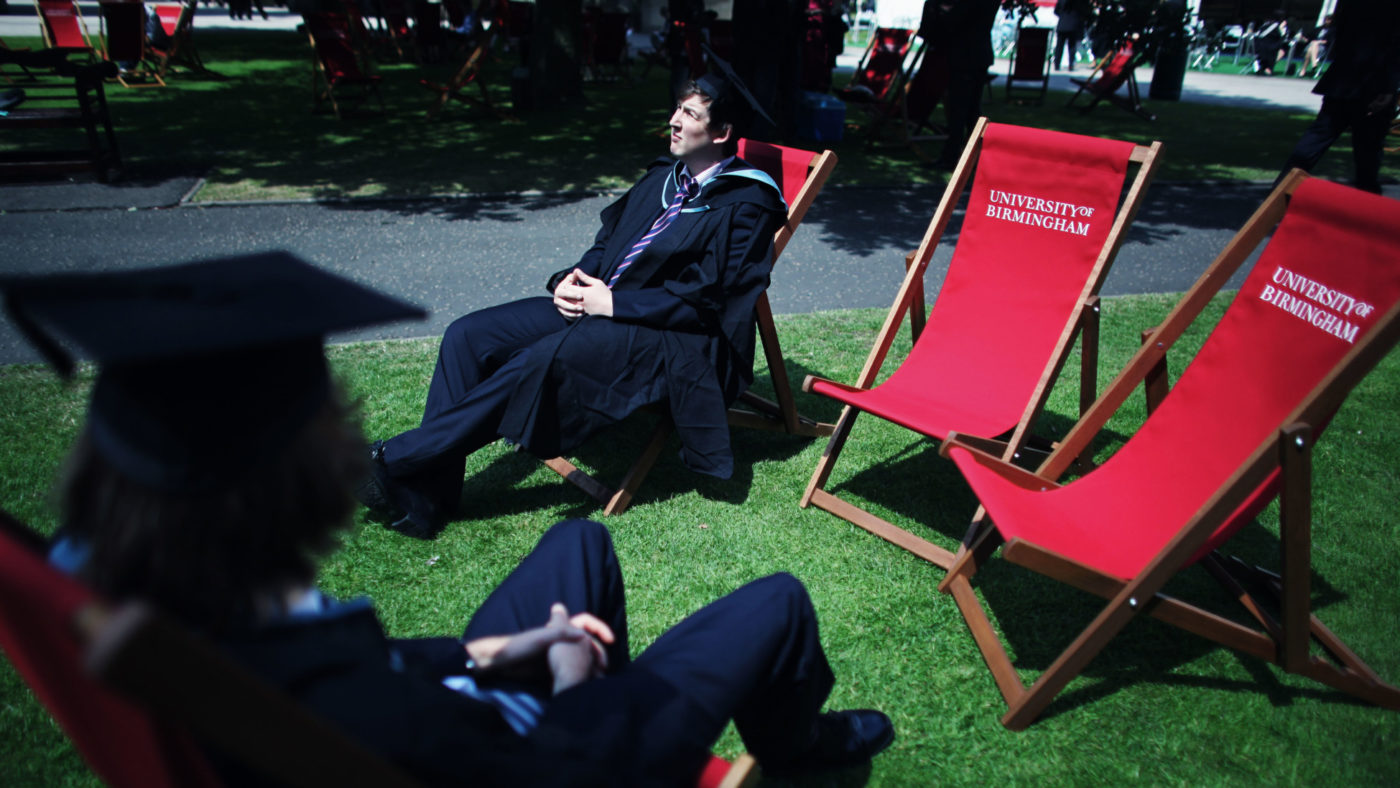Student politics has always been a site of radical dissent. In theory, there is nothing wrong with this. It is perfectly legitimate to question the wisdom of conventional beliefs or government policy. However, a line must be drawn.
In recent years, the National Union of Students (NUS) has promoted “Students Not Suspects”, a student-led campaign which calls for the abolition of the Prevent strategy. It tells Muslim students that they are being deliberately targeted by a racist government. Moreover, it brings extremists onto campuses to spread hatred and intolerance, and encourages student unions to boycott Prevent, a necessary counter-extremism policy which safeguards vulnerable students.
Since becoming official NUS policy in 2015, “Students Not Suspects” has received support from academics, student unions, trade unions and others. A new report published by Student Rights and The Henry Jackson Society – Tolerating the Intolerant: A Report on ‘Students not Suspects’ – reveals that the campaign has effectively become a vehicle for extremist interests. It advances extremist tropes, extremist speakers and extremist narratives – all the while attacking anybody, NUS officials or otherwise, who distances themselves from its position.
To this day, “Students Not Suspects” hosts extremist speakers at unbalanced events. Many of them belong to Islamist organisations that have troubling histories of intolerance and sympathy for terrorism.
Their latest national tour took place in November 2017. One panel discussion held at UCL featured CAGE’s International Director Muhammad Rabbani, who was recently arrested and convicted of an offence under the Terrorism Act.
Shamefully, nearly three years ago the NUS National Conference passed a motion which mandated the NUS to work closely with CAGE, an organisation which has a long history of publicly defending convicted terrorists. This dalliance with extremism has normalised unpleasant views and alienated many moderate students from the NUS.
Disturbingly, numerous NUS activists involved in the ‘Students Not Suspects’ campaign have made anti-Semitic remarks. Former NUS President Malia Bouattia has claimed that the University of Birmingham is a “Zionist outpost”, has spoken of “Zionist lobbies” and a “Zionist-led media”, and has defended violent resistance. Her comments were condemned by the Union of Jewish Students (UJS) and led many student unions to disaffiliate from the NUS.
Leading figures in the campaign have also spread misinformation about Prevent. Former Vice-President Shelly Asquith misleadingly tweeted that Prevent had “caused” the installation of CCTV cameras in prayer rooms and even the shredding of Qurans at the University of Westminster. As well as fuelling opposition to counter-extremism, these dangerous myths threaten to radicalise students who are already vulnerable and aggrieved.
Rahmaan Mohammadi, a school student and a member of the NUS’s National Executive Council, spoke at a number of “Students Not Suspects” events. His narrative of being questioned for wearing a Palestine badge in class has been instrumental in portraying Prevent as a racist policy that deliberately targets Muslim students. This has been a central theme of the “Students Not Suspects” campaign.
In reality, Mohammadi’s case reveals a determined effort to mislead audiences with one-sided and inaccurate accounts of Prevent’s supposed failures. As well as distributing material in class belonging to the extreme organisation Friends of Al-Aqsa, it was recently discovered that Mohammadi has expressed sympathy for Syria’s President Assad and the terrorist group Hezbollah, described British soldiers as “terrorists”, used anti-Semitic tropes about Mark Zuckerberg, and supported terrorism against Israel.
Although the campaign has been condemned by prominent politicians such as David Cameron and Theresa May, it is impossible to deny that “Students Not Suspects” has been influential on grassroots student opinion. A gradual process of institutionalisation and legitimisation of “Students Not Suspects” within the NUS has clearly taken place. It has led effective publicity campaigns, encouraged numerous student unions to pass motions boycotting Prevent and toured speakers across the UK to audiences comprising thousands of students.
This harmful activism can have tragic consequences. Students at the University of Salford were busy boycotting Prevent at the same time that future Manchester bomber Salman Abedi was a student there.
Its latest 2017 tour shows that there is little sign that the campaign will disappear in the near future. It has divided opinion and undermined trust between students, staff and local authorities. If left unchecked, it threatens to undermine the work of Prevent coordinators and leaves vulnerable students exposed to extremist speakers and organisations targeting campuses.
The government must play a greater role in successful advocacy and communication of the Prevent policy. In addition, universities should host as many Prevent workshops as possible, framing them as opportunities to relay concerns about the policy. They should partner and build relations with civil society organisations that are campaigning against extremism and the anti-Prevent lobby, such as interfaith organisations, secular groups and anti-extremism charities.
Most importantly, it is time for moderate students to speak out and expose this campaign for what it really is. The NUS needs to be saved from itself.


